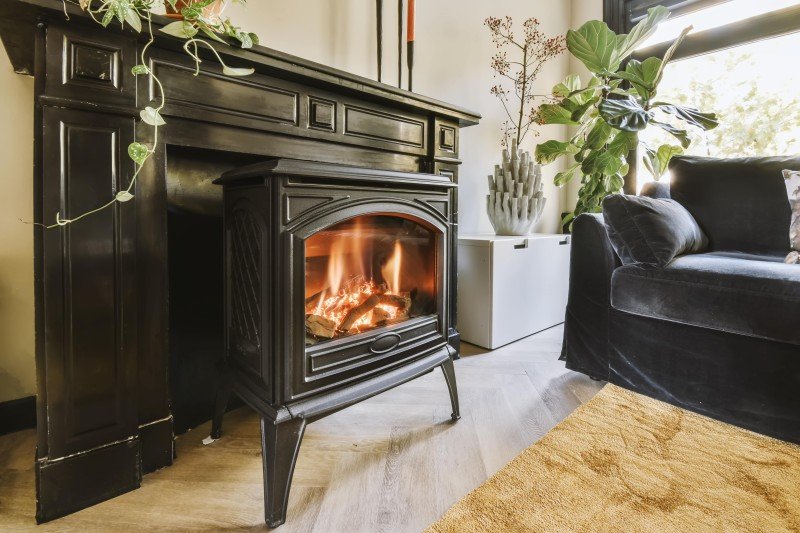The Evolution Of Best Value Fireplaces
Best Value Fireplaces: An In-Depth Guide
The fireplace has actually long been concerned as the heart of a home, supplying heat, atmosphere, and a centerpiece for celebrations. However, navigating through various options can be frustrating, especially with spending plan constraints in mind. This post presents a helpful guide on the very best value fireplaces, detailing their types, features, and advantages to help property owners make a wise choice.
Kinds of Fireplaces
Fireplaces can be found in a variety of designs and types, each with different attributes, costs, and advantages. Here's an in-depth take a look at the most common kinds of fireplaces available in the market today.
Type of Fireplace
Description
Average Cost
Pros
Cons
Wood-Burning
Burn logs to create heat and atmosphere.
₤ 1,500 – ₤ 5,000
Genuine experience, natural heat
Needs routine maintenance, less efficient
Gas Fireplaces
Uses natural gas or gas to produce heat.
₤ 2,000 – ₤ 5,000
Easy to use, cleaner than wood
Limited to gas supply, setup expenses
Electric Fireplaces
Imitates flames with LED technology and produces heat by means of electrical energy.
₤ 200 – ₤ 3,000
Easy setup, setup flexibility
Less genuine feel, higher operating costs
Pellet Stoves
Usage compressed wood or biomass pellets, offering an eco-friendly option.
₤ 3,000 – ₤ 4,500
Efficient, low emissions
Requirements electricity to run, requires storage for pellets
Ethanol Fireplaces
Burns ethanol fuel, producing flames that don't require a chimney.
₤ 300 – ₤ 2,500
No vents needed, portable
Higher fuel expense, safety concerns
Elements to Consider When Choosing a Fireplace
Picking the ideal fireplace is not just about visual appeals; it also includes practical considerations. Here are essential aspects to remember:
1. Budget
- Identify just how much you want to spend. Keep in mind that installation and upkeep costs can build up.
2. Space and Size
- Make sure the fireplace fits well within the room, considering both the space available and the heating requirements.
3. Fuel Type
- Select the fuel source based on schedule, expense, and the type of atmosphere you wish to achieve.
4. Efficiency
- Select systems with high-efficiency scores to ensure you are getting the most value for your cash in regards to heat output.
5. Visual Appeal
- Select a style and design that complements existing decor and boosts the general beauty of the area.
6. Laws
- Know regional policies, allows, and building codes that might affect your fireplace setup.
Top Best Value Fireplaces
Based upon client reviews, professional viewpoints, and overall value for cash, here are some of the very best value fireplaces currently offered in the market:
1. DuraVent Pellet Stove
- Type: Pellet
- Average Cost: ₤ 2,000
- Highlights: Highly efficient with low emissions, making it an excellent choice for environmentally-conscious property owners.
2. Napoleon B36NTR-1
- Type: Gas
- Typical Cost: ₤ 2,500
- Emphasizes: This fireplace is visually attractive and extremely efficient, with a smooth style and adjustable flame.
3. Duraflame Electric Heater Stove
- Type: Electric
- Average Cost: ₤ 200
- Highlights: Affordable and portable, perfect for smaller sized areas or including ambiance to a space without permanent installation.
4. Genuine Flame Juliet Gel Fireplace
- Type: Ethanol
- Typical Cost: ₤ 300
- Emphasizes: A trendy choice for modern spaces that requires no venting, making it versatile and simple to set up.
5. Vogelzang VG5790
- Type: Wood-Burning
- Typical Cost: ₤ 800
- Highlights: Offers a traditional wood-burning experience with a sleek modern design, ideal for those who value the traditional atmosphere.
Regularly Asked Questions (FAQs)
Q1: What is the most cost-effective fireplace choice?
A1: Electric fireplaces tend to be the most economical in regards to preliminary purchase price and installation, but can have greater operating expenses compared to gas or pellet units.
Q2: Are gas fireplaces safer than wood-burning fireplaces?
A2: Yes, gas fireplaces typically produce fewer emissions and pose a lower threat of chimney fires as they do not produce creosote like wood-burning units.
Q3: Can I set up a fireplace myself?
A3: While some electric fireplaces enable simple self-installation, other types, specifically gas and wood-burning models, generally need expert setup due to venting and security concerns.
Q4: How do I keep my fireplace?
A4: Regular maintenance consists of cleaning up the chimney (for wood-burning fireplaces), checking for gas leakages (in gas units), and guaranteeing appropriate ventilation for electric designs.
Q5: Is an ethanol fireplace an excellent option?
A5: Ethanol fireplaces are appealing for their modern style and ease of setup. Nevertheless, they can be less efficient and more costly to run long-lasting compared to other fuel types.
Selecting a value fireplace that satisfies your visual preferences and useful requirements includes comprehensive research and factor to consider. By comprehending simply click the up coming web site of fireplaces, their associated costs, and advantages, homeowners can make educated choices that will not just fit their spending plan but also boost the warm and inviting environment of their homes. Whether choosing an electric, gas, wood-burning, pellet, or ethanol design, the best fireplace awaits to change your living area.
